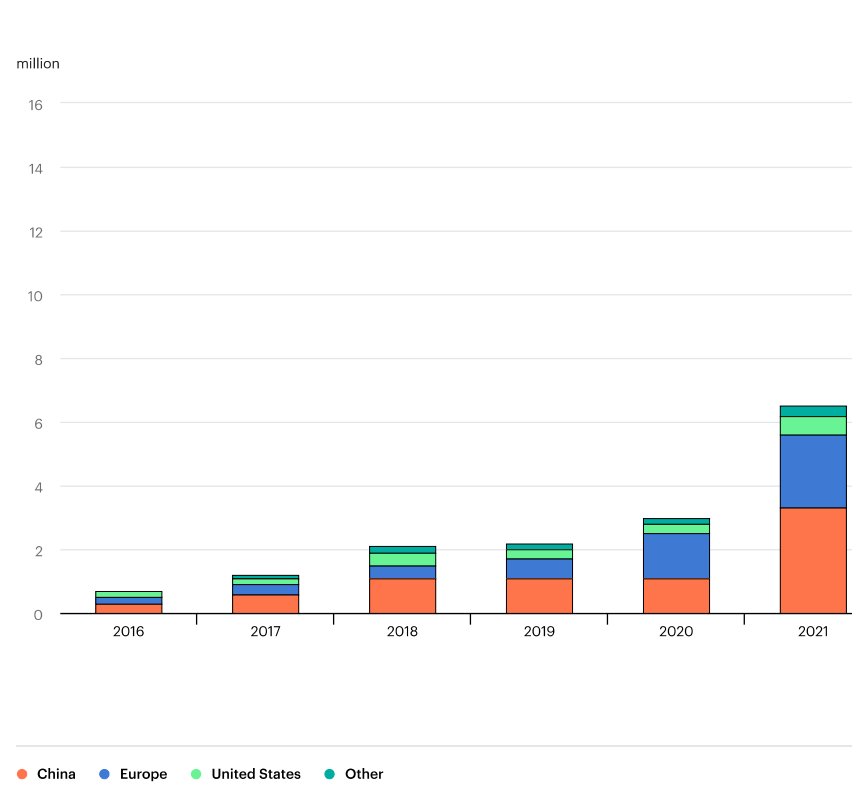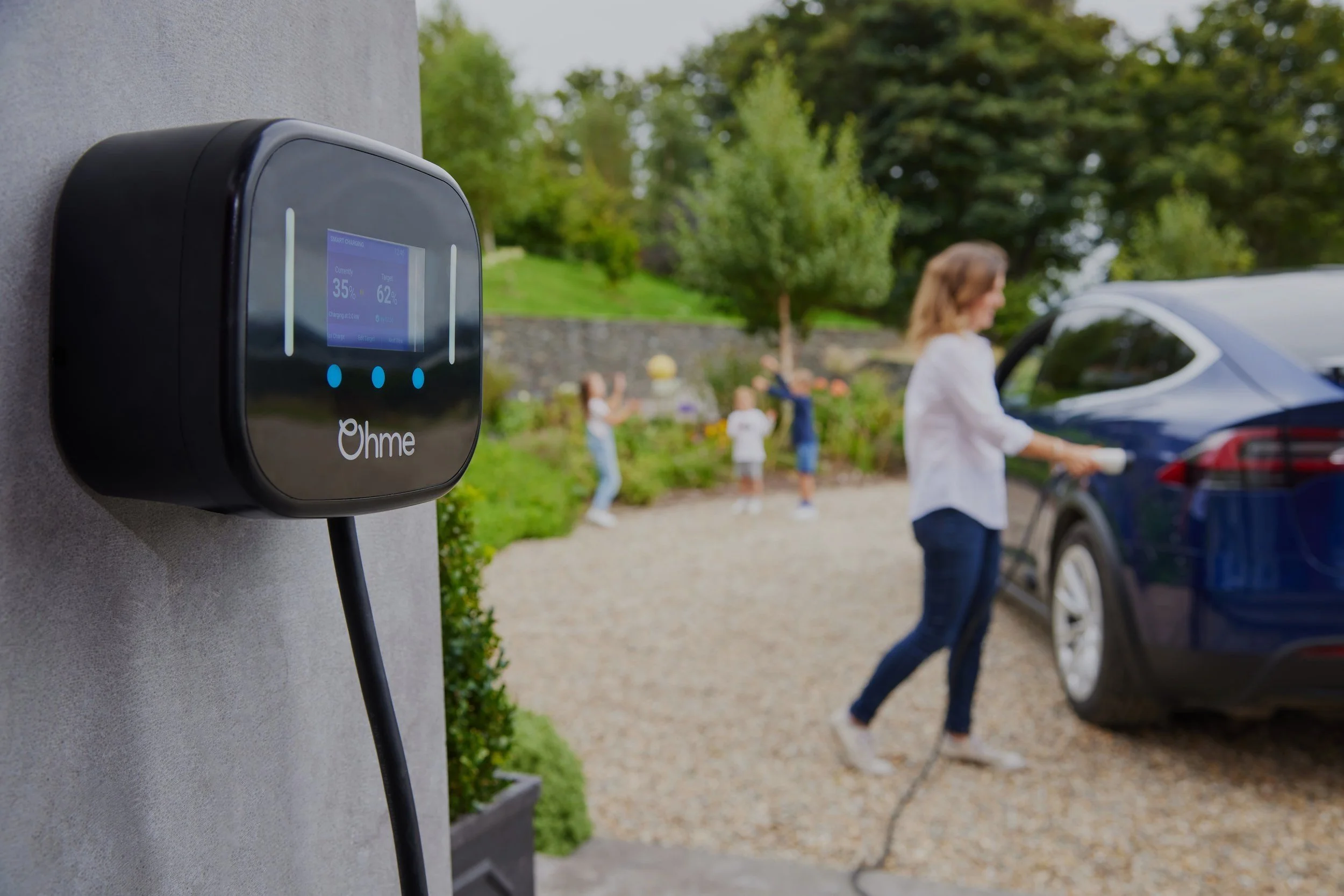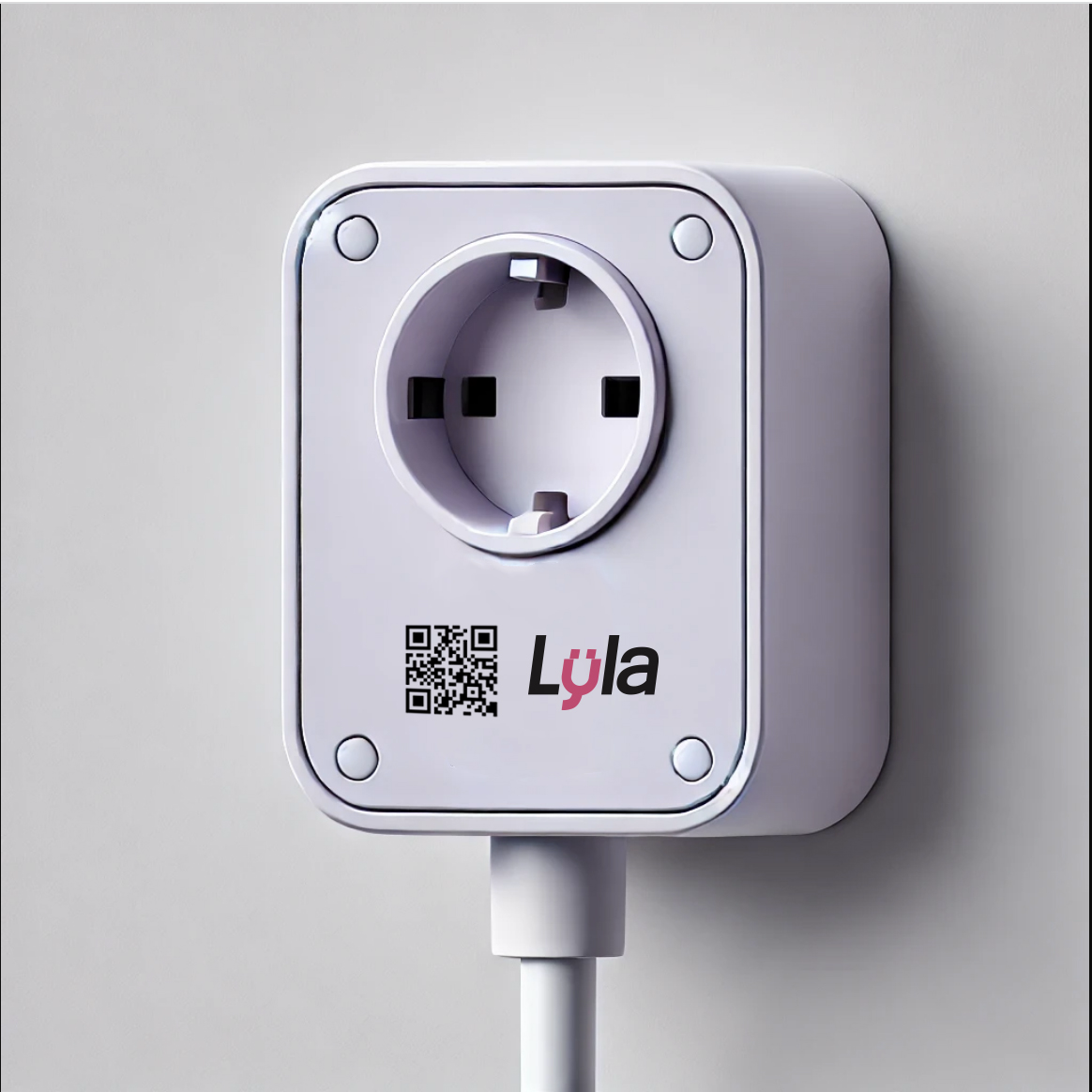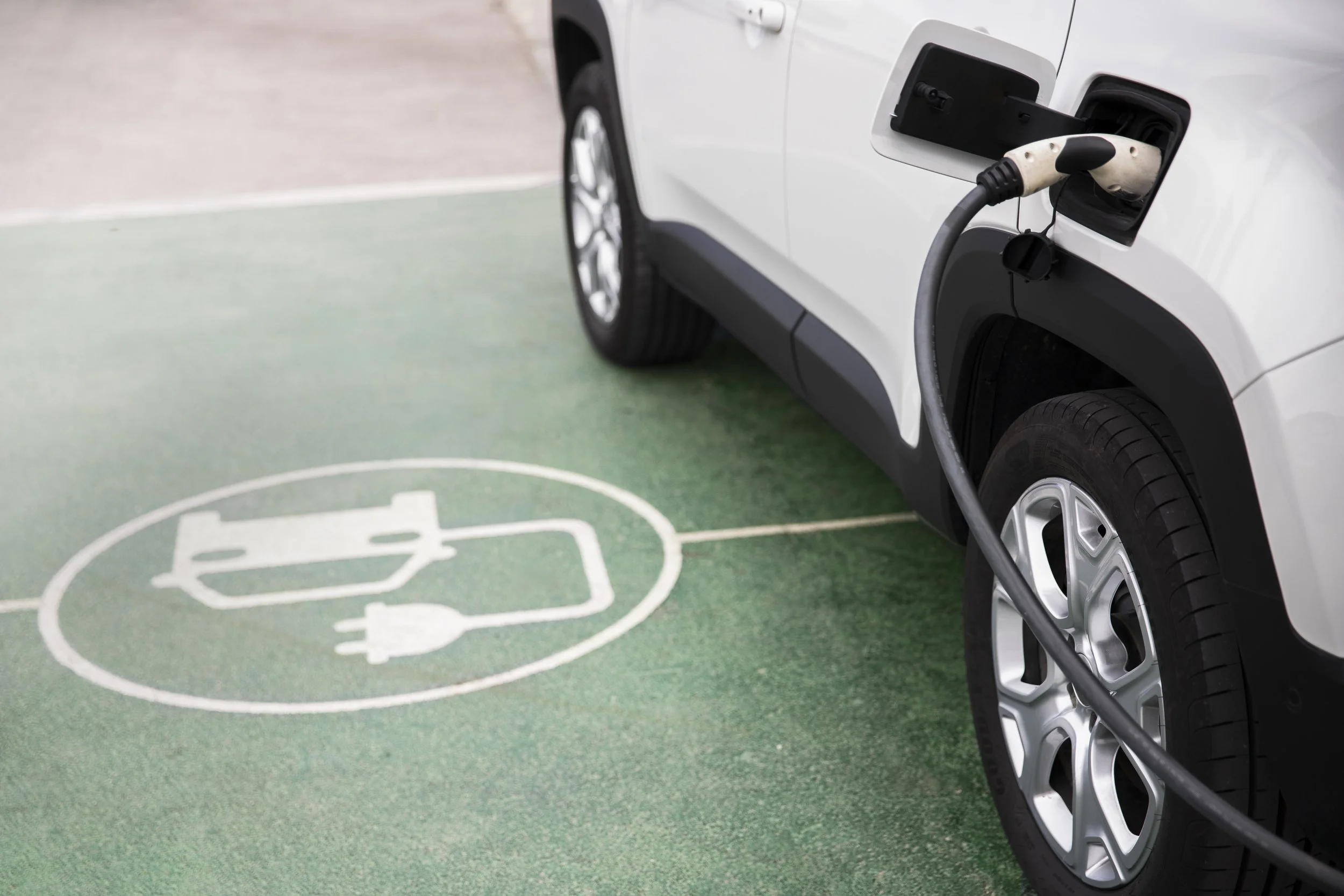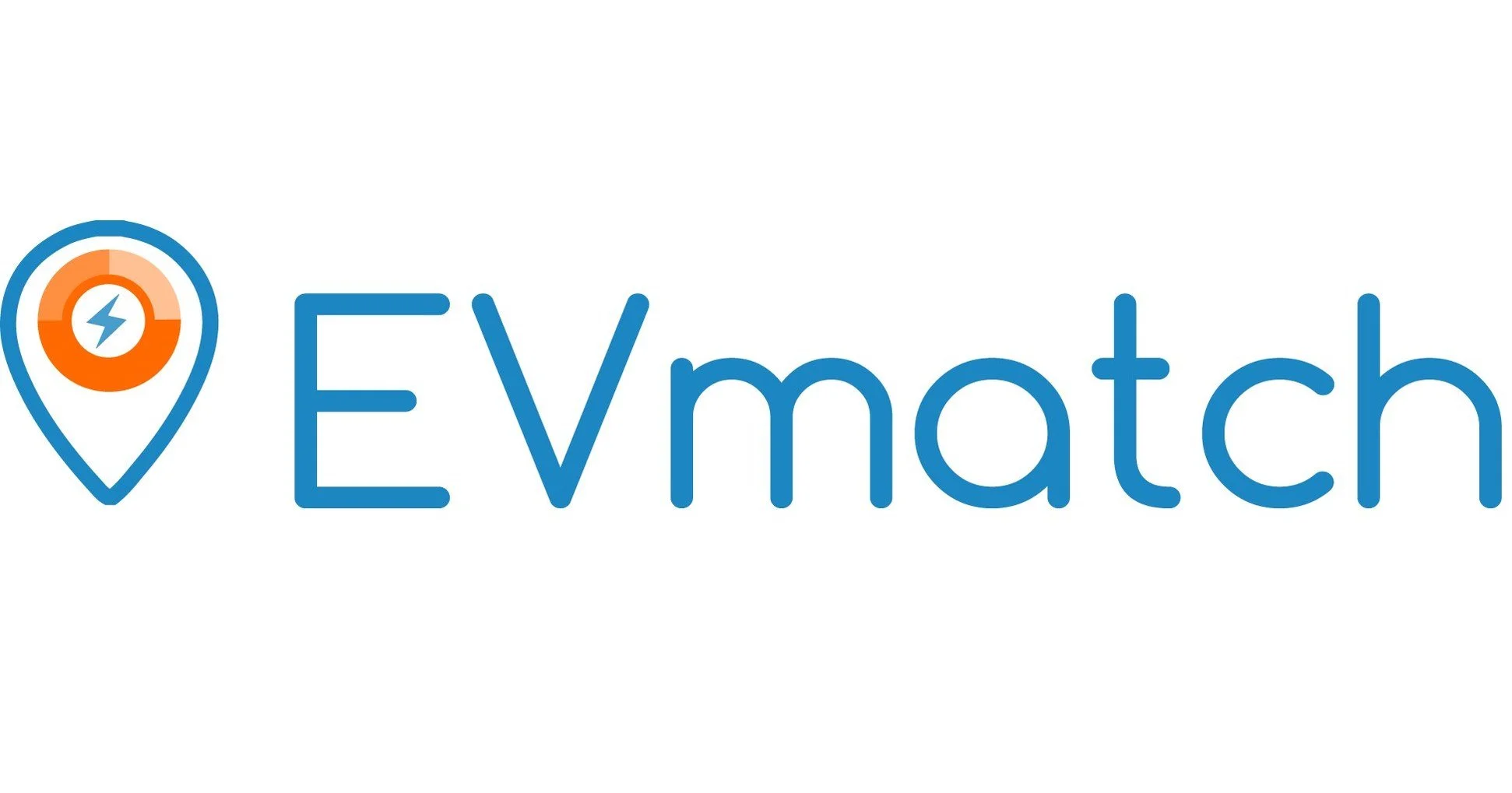Turn your driveway into a passive income stream
Electric vehicle (EV) charger sharing is a system where EV owners can share their home chargers with other EV drivers. This can be done through a variety of platforms, such as peer-to-peer networks or through companies like GoPlugable.
To share their charger, a homeowner simply needs to create an account on the platform and list their charger. Once listed, other EV drivers can browse for available chargers and book a time to charge. When the booking is confirmed, the homeowner will receive a notification and the driver will be able to plug in their car.
EV charger sharing is a mutually beneficial arrangement. For homeowners, it is a way to earn passive income by sharing their unused charging capacity. For EV drivers, it provides a convenient and affordable way to charge their cars.
The current trend of electric vehicle (EV) adoption is exponential. Global sales of EVs exceeded 10 million in 2022, and the share of EVs in total car sales more than tripled in three years, from around 4% in 2020 to 14% in 2022. EV sales are expected to continue strongly through 2023, with over 14 million EVs projected to be sold. (“Electric vehicles - IEA”) Overall, EV charger sharing is a necessary component of the transition to electric transportation. By providing EV drivers with convenient and affordable charging options, EV charger sharing can help to overcome the fears of EV adoption and pave the way for a more sustainable future.
Overall, EV charger sharing is a necessary component of the transition to electric transportation. By providing EV drivers with convenient and affordable charging options, EV charger sharing can help to overcome the fears of EV adoption and pave the way for a more sustainable future.
The purpose of this article is to explore how homeowners can capitalize on the trend of electric vehicle (EV) adoption in 2024.
As mentioned above, the EV adoption trend is very strong and is expected to continue growing rapidly in the coming years. This presents a significant opportunity for homeowners to generate passive income by sharing their home chargers with other EV drivers.
The EV market boom: Statistics on the growth of EV ownership
The growth of electric vehicle (EV) ownership has been exponential in recent years. In 2022, global EV sales exceeded 10 million, and the share of EVs in total car sales more than tripled in three years, from around 4% in 2020 to 14% in 2022. (“Electric vehicles - IEA”)
This rapid growth in EV adoption is being driven by a number of factors, including:
Government incentives: Governments around the world are offering incentives to encourage people to switch to EVs, such as tax breaks and rebates.
Falling battery costs: The cost of lithium-ion batteries, which are used in most EVs, has fallen significantly in recent years, making EVs more affordable.
Improving performance: EVs are now offering longer ranges and faster charging times, making them more practical for everyday use.
Projected trends for EV adoption in 2024
EV adoption is expected to continue to grow strongly in 2024. According to the International Energy Agency (IEA), global EV sales are projected to reach 14 million in 2024. This would represent a growth rate of over 40% from 2023. (“Electric vehicles - IEA”)
The IEA also projects that the share of EVs in total car sales will reach 23% in 2024. This would mean that one out of every four new cars sold in 2024 would be an EV
You can read the whole report here
Gap in public charging infrastructure
Despite the rapid growth of EV adoption, there is still a gap in EV infrastructure, particularly in public charging stations. This is especially true in rural areas and in developing countries. The IEA estimates that there will be a need for 40 million public chargers worldwide by 2030. However, there are currently only around 1.8 million public chargers in operation. This gap in public charging infrastructure is one of the key challenges to EV adoption. It is important to invest in building out public charging infrastructure to support the growing number of EVs on the road.
The growth of EV ownership is accelerating, and this trend is expected to continue in 2024. Homeowners can capitalize on this trend by sharing their home EV chargers with other EV drivers. However, there is still a gap in public charging infrastructure, and this is one of the key challenges to EV adoption.
Understanding Home EV Chargers: What is a home EV charger?
A home EV charger is a device that allows you to charge your electric vehicle (EV) at home. Home EV chargers are typically hardwired into your electrical system and can provide much faster charging than plugging your EV into a standard household outlet.
How does a home EV charger work?
Home EV chargers work by converting the alternating current (AC) electricity from your home's electrical system into direct current (DC) electricity. DC electricity is the type of electricity that EV batteries use.
Once the AC electricity has been converted to DC electricity, the home EV charger sends it to the EV's battery pack. The EV's onboard charger then manages the charging process to ensure that the battery is charged safely and efficiently.
Types of home EV chargers
There are two main types of home EV chargers: Level 1 and Level 2.
Level 1 chargers are the most basic type of home EV charger. They plug into a standard household outlet and can provide up to 1.4 kW of power. This means that it can take 8-12 hours to fully charge a typical EV battery.
Level 2 chargers are more powerful than Level 1 chargers. They require a dedicated 240-volt outlet and can provide up to 19.2 kW of power. This means that it can take 2-4 hours to fully charge a typical EV battery.
In addition to Level 1 and Level 2 chargers, there are also a few other types of home EV chargers available, such as DC fast chargers and solar-powered chargers. However, these types of chargers are less common and more expensive.
For more on How to Choose the Right EV Charging Solution for Your Apartment Complex & Residential Society, click here.
Benefits of installing a home EV charger
Lower charging costs: Home EV chargers can save you money on your charging costs. This is because electricity rates are typically lower during off-peak hours. You can schedule your EV to charge during off-peak hours to take advantage of lower rates.
Convenience: Charging your EV at home is much more convenient than having to find a public charging station. You can simply plug in your EV when you get home and it will be charged by the morning.
Environmental benefits: EVs are much cleaner than gasoline-powered vehicles. Installing a home EV charger can help to reduce your carbon footprint.
Government incentives and subsidies
In Ireland, the Sustainable Energy Authority of Ireland (SEAI) offers a grant of up to €350 towards the installation of a home EV charger. To be eligible for the grant, you must have a registered EV and your home must have a suitable electrical connection.
For further details, click here.
How can I turn my driveway into a profit centre
Renting out your driveway and EV charger is a great way to generate passive income and help other EV drivers charge their vehicles. It is also a way to help promote the adoption of electric vehicles.
To rent out your driveway and EV charger on GoPlugable, simply create an account and list your charger. You can set your own pricing and availability. Once your charger is listed, EV drivers can find it and book a charging session.
When a driver books a charging session, you will receive a notification. You can then approve or decline the booking. If you approve the booking, the driver will be able to access your driveway and EV charger using the GoPlugable app.
GoPlugable takes care of all the payments and billing. You will receive a direct deposit into your bank account each month for the bookings you have completed.
Renting out your driveway and EV charger on GoPlugable is a great way to:
Generate passive income
Help make EV charging more accessible
Support a local company
There are a few factors that make a driveway a good candidate for renting out:
Location: Driveways in convenient locations, such as near major roads or public transportation, are more likely to be rented by EV drivers.
Accessibility: Driveways that are easy to access, with plenty of space for vehicles to park, are also more desirable.
Type of EV charger: Driveways with Level 2 EV chargers are more likely to be rented than driveways with Level 1 chargers. This is because Level 2 chargers can charge EVs much faster.
Legal considerations
There are a few legal considerations to keep in mind if you are planning to rent out your driveway and EV charger:
Zoning laws: You will need to check with your local zoning department to make sure that it is legal to rent out your driveway.
Business license: In some cases, you may need a business license to rent out your driveway and EV charger.
Insurance: You should make sure that your home insurance policy covers the rental of your driveway and EV charger.
Insurance implications
It is important to make sure that your home insurance policy covers the rental of your driveway and EV charger. If you do not have adequate insurance, you could be liable for any damages or injuries that occur while your driveway is being rented.
Some home insurance companies offer special riders for homeowners who are renting out their driveway and EV charger. These riders can provide additional coverage for things like liability and property damage.
If you are unsure whether your home insurance policy covers the rental of your driveway and EV charger, you should contact your insurance company.
Renting out your driveway and EV charger is a great way to generate passive income and help other EV drivers charge their vehicles. However, it is important to be aware of the legal considerations and insurance implications before you start renting out your driveway.
Platforms and services
EV Charger Network Platforms for Driveway and Charger Rentals
GoPlugable is a peer-to-peer EV charger rental platform that uses Stripe as its payment gateway. To list your charger, you need to create an account and provide information about your charger, such as its type, power output, and location. You can then set your own pricing and availability. When a driver wants to rent your charger, they will search for available chargers in their area and send a booking request to the charger owner. Once the charger owner approves the request, the driver will be able to access the charger using the GoPlugable app.
JustPark is a parking app that also allows EV drivers to rent out their home chargers. To list your driveway, you simply need to create an account and provide information about your charger, such as its type, power output, and location. You can then set your own pricing and availability. When a driver wants to rent your charger, they will send you a booking request. Once you approve the request, the driver will be able to access your charger using the JustPark app.
Bookmycharge is another peer-to-peer EV charger rental platform. To list your charger, you need to create an account and provide information about your charger, such as its type, power output, and location. You can then set your own pricing and availability. When a driver wants to rent your charger, they will search for available chargers in their area and send a booking request to the charger owner. Once the charger owner approves the request, the driver will be able to access the charger using the Bookmycharge app.
EVmatch is a unique EV charger rental platform that allows you to set your own pricing and decide who can use your charger. You can also choose to host your charger for free. When a driver wants to rent your charger, they will send you a booking request. You can then review the driver's profile and decide whether or not to approve the request. Once you approve the request, the driver will be able to access your charger using the EVmatch app.
Process of Listing Your Driveway and Setting Up Payment Structures
The process of listing your driveway and setting up payment structures varies depending on the platform you choose. However, in general, the following steps are involved:
Create an account on the platform.
Provide information about your driveway and charger, such as its type, power output, and location.
Set your own pricing and availability.
Review and approve booking requests from drivers.
Receive payments from drivers through the platform's payment gateway.
Features Offered by EV Charger Network Platforms
EV charger network platforms offer a variety of features to make it easy for drivers to rent chargers and for charger owners to manage their listings. Some common features include:
Scheduling: Drivers can schedule charging sessions in advance to ensure that they have access to a charger when they need it.
Pricing: Drivers can view pricing information for chargers before they book a session.
User reviews: Drivers can read and leave reviews of chargers, which can help other drivers make informed decisions about which chargers to use.
In addition to these common features, some platforms also offer additional features, such as:
Host protection: Some platforms offer host protection programs to protect charger owners from damage to their chargers or other liabilities.
Insurance: Some platforms offer insurance to protect drivers and charger owners from financial losses in the event of an accident or other incident.
EV charger network platforms make it easy for drivers to rent chargers and for charger owners to manage their listings. These platforms offer a variety of features to make the charging experience as smooth as possible for everyone involved.
Future Outlook
The future of home EV charging as a passive income stream is very promising. The global EV market is expected to grow exponentially in the coming years, and with it, the demand for EV charging stations. This is creating a significant opportunity for homeowners to generate passive income by renting out their home chargers.
In addition to the growing demand for EV charging, there are a number of upcoming technologies and trends that could impact the home EV charging market and make it even more attractive for passive income seekers. These include:
Vehicle-to-grid (V2G) technology: V2G technology allows EVs to communicate with the power grid and sell excess electricity back to the grid. This could provide homeowners with an additional source of revenue from their EV chargers.
Peer-to-peer (P2P) charging platforms: P2P charging platforms allow homeowners to rent out their home chargers to other EV drivers. This is a convenient and affordable way for EV drivers to charge their vehicles, and it provides homeowners with a way to generate passive income from their unused chargers.
Smart charging: Smart charging technology allows EV chargers to optimize charging based on electricity prices and other factors. This can help homeowners to save money on their electricity bills and to generate more revenue from their EV chargers.
Overall, the future of home EV charging as a passive income stream is very bright. The growing demand for EVs, the development of new technologies, and the increasing popularity of P2P charging platforms are all creating new opportunities for homeowners to generate passive income from their home chargers.
Here are some specific examples of upcoming technologies and trends that could impact home EV charging as a passive income stream:
Bidirectional charging: Bidirectional charging allows EVs to not only receive electricity from the grid but also send electricity back to the grid. This could allow homeowners to sell excess electricity back to the grid during peak periods when electricity prices are high.
Wireless charging: Wireless charging is a convenient and efficient way to charge EVs. It could also make it easier for homeowners to rent out their home chargers, as drivers would not need to plug in their vehicles.
Shared charging: Shared charging programs allow multiple EV drivers to share a single charger. This could help to reduce the cost of EV charging and make it more accessible to more people.
These are just a few examples of the many ways that upcoming technologies and trends could impact home EV charging as a passive income stream. As the EV market continues to grow and develop, we can expect to see even more innovative and profitable ways to generate passive income from home EV charging.
To Summarize
Home EV charging is a promising passive income stream for homeowners.
The demand for EV chargers is expected to skyrocket as more and more people switch to electric vehicles.
Upcoming technologies and trends, such as V2G, bidirectional charging, and smart chargers, could make home EV charging even more lucrative for homeowners.
If you have a driveway and an EV charger, you can generate income by EV charging sharing by renting it out to other EV drivers or selling excess solar energy back to the grid. This is a relatively hands-off way to make extra money, and it can help offset the cost of your own EV ownership
If you're interested in generating passive income from your home EV charger, I encourage you to sign up to the waitlist for the launch of GoPlugable, a peer-to-peer EV charger rental platform. We'll be the first to let you know when you can start renting out your charger and making money.

